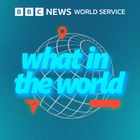
What in the World
May 16, 2024
The electric car industry is sending mixed signals. On one hand, sales of electric vehicles in Europe overtook diesel vehicles for the first time last year and annual sales of electric vehicles in China now make up 30% of total car sales in the country.
On the other hand, Elon Musk’s company Tesla and Chinese manufacturer BYD, two of the biggest electric vehicle makers, have both reported significant drops in sales this year. Plus, industry heavyweights General Motors, Nissan, Hyundai, Volkswagen and Ford have all revealed that as a result of a loss in momentum for electric cars, they are increasing their investment in hybrid vehicles, which partly use fossil fuels like petrol or diesel that harm the environment.
Confused? BBC business correspondent Erin Delmore explains what exactly is going on.
Plus, we take a closer look at how the electric vehicle industry is doing in Africa - and why the future is all about e-motorbikes instead of cars. Prosper, a 24 year old courier in Uganda tells us why she likes using an electric motorbike to get around.
Instagram: @bbcwhatintheworld WhatsApp: +44 0330 12 33 22 6 Email: [email protected] Presenter: Daniel Dadzie Producers: Josh Jenkins and Adam Chowdhury Editor: Julia Ross-Roy

